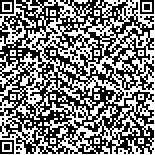本文已被:浏览 139次 下载 107次
投稿时间:2024-04-23 网络发布日期:2024-12-20
投稿时间:2024-04-23 网络发布日期:2024-12-20
中文摘要: 目的 探讨基于风险管理理论的预见性护理在肺癌化疗患者护理中的应用价值。方法 选取2023年1月至2023年12月于中国人民解放军空军军医大学第一附属医院接受化疗的98例肺癌患者,按照随机数字表法分为对照组、观察组,每组49例。对照组给予常规护理干预,观察组在对照组基础上给予基于风险管理理论的预见性护理,比较两组干预前、干预后(第一个化疗周期后)自我护理能力、心理状态、营养状况;两组干预后护理质量、护理满意度;比较两组干预期间不良反应发生情况。结果 干预后,两组自我护理能力均得到一定程度提升,其中观察组健康知识、自我概念、自我护理技能、自护责任感评分均高于对照组(P<0.05)。两组干预后焦虑自评量表(SAS)、抑郁自评量表(SDS)、疾病不确定感量表(MUIS)评分较干预前均显著降低(P<0.05),且观察组上述各评分较对照组降低更加明显(P<0.05)。干预后,观察组营养情况优于对照组(Z=2.686,P=0.008)。干预后与对照组相比,观察组治疗与护理(97.96% vs 83.67%)、护理计划(100.00% vs 81.63%)、基础护理(95.52% vs 81.63%)、安全护理合格率(97.96% vs 83.67%)均较高,差异有统计学意义(P<0.05)。干预后,观察组护理满意度高于对照组(93.88% vs 71.43%, χ2=8.611, P<0.05)。观察组不良反应发生率明显低于对照组(20.41% vs 40.81%, χ2=4.804, P<0.05)。结论 基于风险管理理论的预见性护理可有效提高肺癌化疗患者自我护理能力,改善患者心理状态、营养状况,降低不良反应发生风险,同时有助于提高护理质量及护理满意度。
Abstract:Objective To explore the application value of predictive nursing based on risk management theory in nursing of lung cancer patients undergoing chemotherapy. Methods Ninety-eight lung cancer patients receiving chemotherapy at the First Affiliated Hospital of the Air Force Medical University of the Chinese People’s Liberation Army from January 2023 to December 2023 were selected. They were randomly divided into a control group and an observation group, with 49 patients in each group. The control group received routine nursing interventions, while the observation group received proactive nursing based on risk management theory in addition to routine care. Self-care abilities, psychological status, and nutritional status before and after intervention (after the first cycle of chemotherapy) were compared between the two groups. Nursing quality, nursing satisfaction after intervention, and occurrence of adverse reactions during the intervention period were also compared between two groups. Results After intervention, both groups showed improvement in self-care abilities. Scores for health knowledge, self-concept, self-care skills, and self-care responsibility in the observation group were significantly higher than those in the control group (P<0.05). Scores on the Self-Rating Anxiety Scale (SAS), Self-Rating Depression Scale (SDS), and Mishel Uncertainty in Illness Scale (MUIS) were significantly reduced after intervention in both groups (P<0.05), with more significant reductions in the observation group compared to the control group (P<0.05). After intervention, the nutritional status of the observation group was better than that of the control group (Z=2.686, P=0.008). Compared with control group, the observation group had higher rates of compliance in treatment and nursing (97.96% vs 83.67%), nursing planning (100.00% vs 81.63%), basic care (95.52% vs 81.63%), and safety nursing (97.96% vs 83.67%), and the differences were significant (P<0.05). Nursing satisfaction was higher in the observation group than in the control group (93.88% vs 71.43%, χ2=8.611, P<0.05). The observation group had a significantly lower incidence of adverse reactions compared to the control group (20.41% vs 40.81%, χ2=4.804, P<0.05). Conclusion Proactive nursing based on risk management theory effectively enhances self-care abilities, improves psychological and nutritional status, reduces the risk of adverse reactions, and contributes to higher nursing quality and satisfaction in lung cancer patients undergoing chemotherapy.
文章编号: 中图分类号:R734.2 R473.73 文献标志码:B
基金项目:
附件
| Author Name | Affiliation |
| SHI Yihua, WU Huijuan, SUN Juanhua | Department of Oncology, The First Affiliated Hospital of PLA Air Force Medical University, Xi’an, Shaanxi 710032, China |
引用文本:
史毅花,吴慧娟,孙娟华.基于风险管理理论的预见性护理在肺癌化疗护理中的应用[J].中国临床研究,2024,37(12):1975-1979.
史毅花,吴慧娟,孙娟华.基于风险管理理论的预见性护理在肺癌化疗护理中的应用[J].中国临床研究,2024,37(12):1975-1979.
